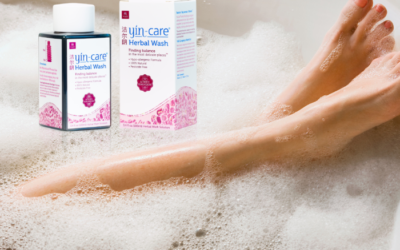When Probiotics Alone Don’t Fix Your Gut Problems
My own journey began over 15 years ago with a celiac disease diagnosis. For a few years prior to that, I had been dealing with fatigue, brain fog, achy joints, stomach cramps, and more. I saw a handful of doctors in my small town that dismissed the symptoms as stress, after the usual blood tests found nothing. They were only looking for typical things like Lyme Disease, anemia, and so forth.Granted, this was before celiac disease and gluten sensitivity were household names. It took a lot of internet research and a 5-hour drive north to Chicago to find an integrative MD that finally helped me find some relief. A gluten-free diet, digestive enzymes, and probiotics helped me feel better, but never 100% back to normal.
Over the years since then, I’ve learned, as the medical community has learned more about the underlying mechanisms that govern digestive health, and how that ties into one’s overall picture of health as well. If you’re one of the tens of millions with some kind of digestive disorder, you may have already tried some supplements from a health food store or some prescription or over the counter medications to limited success. It can be very frustrating to go through this trial-and-error process, but with growing research and interest in functional medicine, there are more options than ever that can help restore balance.
To begin, there is a supplement that helps address issues at the center of a wide variety of gut problems. Before we move on, though, I have to emphasize the importance of working with a practitioner to identify potential imbalances, which may involve lab tests. In my own case, these tests identified some key issues I had going on, and this eliminated a lot of the guessing game that I’d been playing for a while.
Most of us consider the digestive tract as part of the internal organ system, but in a functional way, it serves as our last external barrier before things pass into the bloodstream. We don’t just take in food and water through our mouth, but all kinds of bacteria, viruses, dust and other foreign particles that the body has to process and determine what to mount defenses against or let pass through. We have a very thin, semi-permeable barrier that lets nutrients, which are smaller, pass through, and pathogens, which tend to be larger, not pass through. The harmful invaders get taken care of by beneficial bacteria and immune responses generated by cells in the gut lining.
When chronic stress, poor diet, and other factors take their toll, this first line of defense of our immune system begins to break down. These negative factors promote inflammation, create a more favorable environment for pathogens, and weaken that thin gate into the bloodstream, which starts to allow things through that the body sees as invaders. Besides pathogens, this also means larger particles of undigested food, otherwise harmless, can trigger an inflammatory response. This is popularly known as ‘leaky gut syndrome’. It can start a vicious cycle of poor health and troubling symptoms that is hard to break out of without some understanding and help.
Fortunately, there are tools to help restore this basic defense that goes back to the first days of our life. During pregnancy and the first days of breastfeeding, mother’s milk contains colostrum, which is rich in proline-rich polypeptides, vitamins, minerals, and immunoglobulins that help build the baby’s strength and immune system, vital for development and long term health.
Colostrum derived from grass-fed cows is similarly rich in nutrients and immune factors. The most common and important immune factor, IgG, are very good at binding with common pathogens that disturb gut and immune balance, neutralizing and removing them from the body. In clinical studies, supplementing with IgG appears to improve markers for immune function, gut barrier integrity, and inflammation balance. It also supports microbial balance in the gut, so it is a good counterpart to taking probiotics. Getting the integrity of the gut barrier back in balance is key to starting the overall healing process. Without it, even the best diet can fail to restore strength and vitality.
There are a number of high-quality professional brands of IgG/colostrum. One of the favorites at the office is Ortho Molecular Products’ SBI Protect. Like the other quality products available, SBI Protect is derived from bovine colostrum. What sets it apart from most though, is that it has been purified to the point that is considered dairy-free and suitable for those with milk allergies. This is especially important, as many who need to take colostrum are dealing with increased food sensitivities and poor digestion. SBI Protect is available in both capsule and powder form. Not all colostrum supplements are alike, especially if it’s from an inexpensive consumer brand. We recommend a product like SBI Protect because of its higher concentration of IgG and Ortho Molecular Products’ quality control measures that ensure that is pure and allergen free.
Prebiotic fiber can be another important piece of the puzzle for rebalancing the digestive process. Prebiotic fibers are those that your friendly gut bacteria use as food. One of the positive byproducts of your flora digesting fiber is butryate, a fatty acid that fuels the cells in your colon wall. Butyrate also plays an important role in gut immune function and offsetting the effects of oxidative stress in the digestive tract, and may help against diarrhea as well.(2) There are many types of prebiotic fibers available, and some are designed with certain digestive disorders in mind. Inulin is probably the most widely used prebiotic, rich in FOS, or fructo-oligosaccharides, and for most, it is a very effective fiber that is an ideal food for gut flora. Prebiotin is our clinic favorite, a gastroenterologist formulated inulin that has been processed to be better absorbed. While inulin is well tolerated by many, some people with IBS and other conditions experience gas, bloating, and other discomfort with inulin and any fiber or foods high in FODMAPs, which stands for Fermentable Oligosaccharides, Disaccharides, Monosaccharides, and Polyols. This includes some fruits, milk products containing lactose, and some vegetables like artichokes, broccoli, and more. In studies so far, restricting FODMAPs appears to improve symptoms for as much as 75% of patients, but more research is needed.(3) In the meantime, some prebiotic fibers have been found to be well tolerated for this group. Douglas Labs Microbiome Fiber is one good example, using a special form of guar gum that is low in FODMAPs but still a very well-tolerated, good fiber food for gut flora.
These are just a handful of the options you might try to help with chronic digestive issues. New avenues are researched every day, revealing all sorts of connections and interactions between our gut, aka the ‘second brain’, and the rest of the body. Diet, lifestyle, exercise, and stress management are also becoming more valuable factors to examine when trying to resolve chronic illness, and digestive issues are no exception. If simply trying a probiotic hasn’t helped you yet, know that there are a number of things to look into. Of course, for troubling or persistent digestion issues, it’s always wise to seek the help of a gastroenterologist, and an integrative or functional medicine practitioner may be valuable as well. It may take time to root out the causes, but there are more tools than ever to help GI issues.
References
1.Canadian Society of Intestinal Research. ‘The Costly Toll of IBS’. Published on the Web Sept. 2005. https://badgut.org/information-centre/a-z-digestive-topics/the-costly-toll-of-ibs/
https://www.sciencedirect.com/science/article/pii/S2405654517301397
2. Canani, Roberto Berni. ‘Potential benefits of butyrate in intestinal and extraintestinal diseases’. World J Gastroenterol. 2011 Mar 28; 17(12):1519-1528.
3.Harvard Health Publishing. ‘Try a FODMAPs Diet to Manage IBS’. Published on the Web July 29, 2015. https://www.health.harvard.edu/diet-and-weight-loss/a-new-diet-to-manage-irritable-bowel-syndrome

Patrick Postlewait studied English Literature and Environmental Studies before spending the rest of his twenties working on an organic farm growing vegetables and herbs. He spent over a decade in the supplement and health food industry before becoming Brands Manager for Acupuncture Atlanta. When not at the clinic, he spends time with his wife and works as a studio musician and songwriter.



